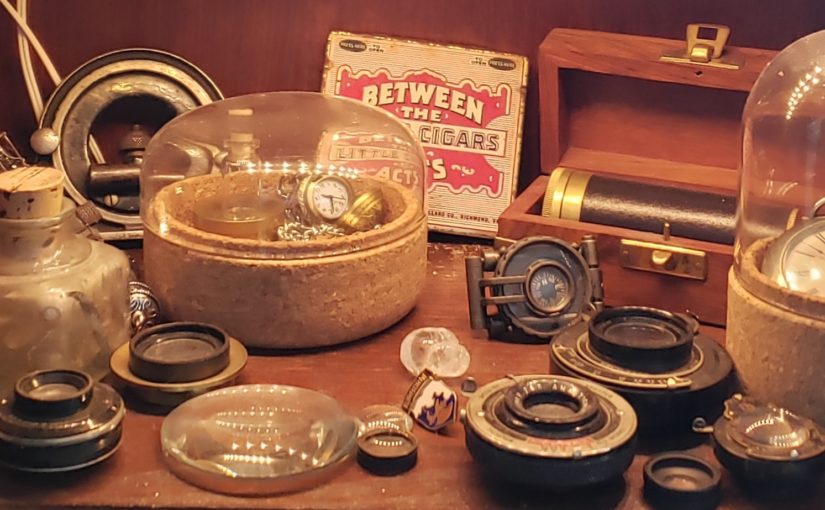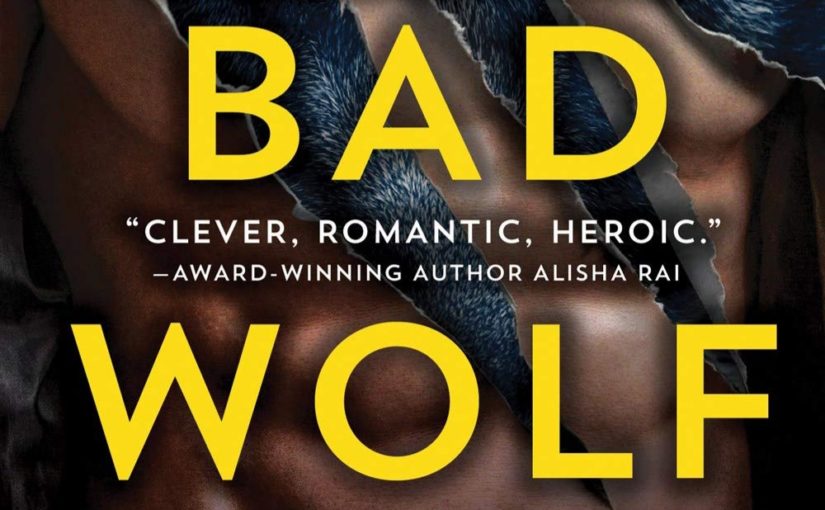I went back and forth about even reviewing Alpha Night, the most recent Psy-Changeling Trinity novel, because it didn’t quite work for me, but for the usual reasons that Psy-Changeling books sometimes don’t work for me. At a certain point it’s on me that I keep reading books that have general themes that can bug me. But then I also want to noodle around and figure out why so few of the Psy-Changeling Trinity books work for me so far, when the last 4 or 5 of the Psy-Changeling installments are my most favoritest of any of them.
So, a quick rundown of the series: Psy-Changeling is a 14-book series set on an alt-Earth where there are 3 kinds of humans: regular humans, like you and me; the Psy, a psychic race who have subjected themselves to brutal anti-emotional conditioning called Silence for the last century; and the Changelings, animal shifters who cluster in packs of Changelings and who shift to similar animals. Changelings can be insular about other changelings — like wolves and cats won’t get on — but humans intermix fine, and do fairly broadly. Also, the Psy often treat humans like shit, as humans have no natural defense against psychic interference. Because the Psy actively repress emotion, child-bearing and rearing is a contractual affair, and the whole race has been cut off, both socially and genetically speaking, from the other two under Silence. The larger arc of the series shows the slow dismantling of Silence, as it turns out repressing emotion in a psychic race is debilitating to the point of species-level collapse.
As a romance series, this larger arc was seen through individual novels that focused on a specific pairing, and gave the background arc a really broad, global sense, like this really was fate-of-the-world stuff, but seen though the eyes of individuals. Mostly the individual outings focused on Psy/Changeling pairings (hence, like, the name of the series), but there are also plenty of Psy/Psy or Changeling/Changeling couples. As a huge nerd, I just went through and counted up: there are 5 Psy/Changeling pairings, 3 Changeling/Changeling pairings, 3 Psy/Psy pairings, and 3ish that include a human. (I say 3ish because one of the “humans” is a member of the Forgotten, a sort of rogue Psy population who submerged into humanity once Silence was initiated.)
On a personal level, I always much prefer a Psy-Changeling novel which focuses on the Psy. On a racial level, they are dealing with profound trauma and abuse, and I think romance novels, with their focus on emotional connection and physical pleasure, can be a perfect environment in which to explore recovery from trauma, especially body trauma. Singh is especially good at this kind of plot, as she never succumbs to the Magical Vagina, those ladyparts whose simple application can heal the most traumatic of injuries. Trauma is real, recovery is often slow, and sometimes people don’t heal completely. The Psy narratives often detail the beauty of the most simple pleasures, anything from burst of sweetness and warmth when you take a sip of hot cocoa, to the feel of silk on the skin. I’m a pretty big sucker for Beautiful Life philosophies.
I’m less interested in Changelings because I find the pack construction frustrating, and the dominant/submissive stuff actively annoying. There is nothing uniquely annoying about the way Changeling culture is constructed compared to other UF/PNR, so I’m not trying to single Singh out. In most shifter narratives, the animal shifters organize themselves around an alpha who is the mostest dominant. In Changeling packs, the dominants act as the government/cops of the pack, while the submissives and maternals, you know, act as healers or school teachers or whatnot. Of course, as you can see from the nomenclature, this is all highly gendered. Occasionally the dominants will talk about how terrifying it is to be called up in front of the maternals, but this strikes me as more of a joke situation: haha, look at the strong dude afraid of his mommy! I literally can’t think of a single maternal named character. (ETA: Wait, that’s not true: I can think of one, and it’s one of the very few female Sentinels. Having her be a maternal solves the problem of her love interest’s fragile ego when he thought she was more dominant than him. Which, that’s pretty fucked up.)
Anyway, The Psy-Changeling books reach a crescendo with the fall of Silence, which then necessitates a global change on all levels of society, and including all three races. During Silence, the three races seemed largely to govern themselves. The Psy were subject to the Psy Counsel, a collection of a dozen or so complete psychos. Psy who showed any kind of emotion were subject to reconditioning or rehabilitation: the first was painful and cruel, and the second resulted in a vegetative state. Changeling packs were organized around an Alpha, as I mentioned before, though there is some law regarding the interaction of the members of Changeling packs with each other. (There was apparently a series of disastrous Territory Wars in the previous century.) Humans seem to have the usual human systems, but then I can’t tell if the nation-state exists, or if there is a global body that advocates for their rights. That doesn’t really matter, I just bring it up because a lot of the legal structures in this world are very lightly sketched, which gives Singh a lot of latitude to bend the world to the characters.
Anyway, after the fall of Silence, and therefore the dissolution of the Psy Council, there are a few books showing the messy interim period until they get their new government systems off the ground. I positively live for this period, in fiction, as I think it’s hard to pull off, but incredibly rewarding. And Singh positively shines given a situation where individual relationships mirror real and important changes in the larger world. By the close of Allegiance of Honor (which honestly read like a clip show, because we check in with literally all the couples from the previous 14 books), global government has been realigned under the Trinity Accord. Trinity, as the name suggests, brings representatives of the three races together, in addition to various important factions within the larger groups: the E-designation Psy, the Forgotten, the Human Alliance, the Arrows, &c &c.
The Psy-Changeling Trinity books are absolutely a continuation of Psy-Changeling, so it’s more like season two than a whole new series. That said, I’ve been kinda bored by them. The first Trinity novel, Silver Silence, I was pretty excited about because it followed a major supporting character, Silver Mercant, who was aide to Kaleb Krychek. Alas, I find bear changelings annoying, which is who the Psy Silver falls in with. (Though, honestly, after spending time with the Moscow wolves in Alpha Night, who are all self-serious bores, I’m more than ready to hang out with the dopey drunk bears again.) Ocean Light also follows a long-running character, the guy who was the head of the Human Alliance, but it recycled the “medical tech might kill me” plot that was way better deployed in Vasic’s book, Shield of Winter, plus the hero was not the kind of asshole I appreciate. (Kaleb Krychek being the ❤️️asshole❤️️ standard.) I did enjoy Wolf Rain, which complicated the E-designation in a really cool way, though the heroine was a million times more interesting than the hero.
Alpha Night follows the alpha of the Russian wolf pack who lives in Moscow along with the Silver Silence bears and Kaleb Krychek. (This is a not dissimilar set up to San Francisco which has cat and wolf packs, and also major Psy players Nikita Duncan and the NightStar family.) Selenka Durev is not the only Changeling alpha who is also a woman — the ocean-wide pack of BlackSea’s First (basically an alpha) is also a girl — but she’s the first we’ve focused on. At a conference of E-designation Psy — who act as a bulwark for the PsyNet, a psychic plane which is necessary for all Psy to, like, continue being alive — Selenka has a fateful meeting with Ethan Night, a member of an insular Psy military unit called the Arrows. Mating at first sight is not supposed to exist, but that’s exactly what happens.
Which, this is right up my damn alley. I dig the narratives that complicate or otherwise rough up tropes of whatever genre, and the mating bond one finds in shifter stories especially makes me itchy. A really fucking fascinating series which does this particularly well is Elizabeth Hunter’s Irin Chronicles, specifically the third in that series, The Secret. That story features a woman who is permanently bonded to another supernatural creature as sort of experiment by that being, which results in both of them locked into both mutual need and mutual antipathy. It’s tragic as hell, and completely, horribly abusive. Alpha Night, unfortunately, doesn’t really do anything with this mating-bond-at-first-sight situation. It’s not supposed to be a thing in the Psy-Changeling universe, so it’s remarked on a lot by the characters, who then often reference genre fiction. Singh also includes excerpts from publications supposedly written in-world. (For example, there’s a soap called Hourglass Lives that I think is a riff on Day of Our Lives, which is so adorable.) I get a kick out of genre fiction commenting on the genre through showing their characters interact with in-world media. (For robust examples of this, check out the Murderbot Diaries by Martha Wells, or Yoon Ha Lee’s Revenant Gate.) It could have been an easy thing to interrogate instalove in this context. Alas.
The interpersonal conflict instead is largely the one between Selenka and her father, who was passed over as alpha when her grandfather died. He’s whiny and entitled, and gives Selenka no small amount of grief. I really love when Singh writes about shitty Changelings who have shitty relationships, because sometimes they’re just a little too perfect. Mating bonds render things like spousal abuse impossible, and they’re so full up with protective instincts that they can be incredibly high-handed and high-and-mighty. (And, honestly, sometimes the way those protective instincts are portrayed looks pretty overbearing to me. The loudest example I can think of was Jenna’s brothers’ behavior in Caressed by Ice. She managed to get them to stand the fuck down, but she had to be really, really assertive in a situation where they were almost physically restricting her. They don’t own her, and nothing about that was healthy.) Selenka’s relationship with her father is heartbreaking, especially because its based on real, longstanding resentments and disconnects. And legit, her relationship with her mom is pretty fucked up too.
Her relationship with Ethan, by contract, is remarkably frictionless. He snaps into his role as the alpha’s consort pretty easily. He even interacts with pack mates with exactly what the situation requires, something which stretched credulity when coming from a scarred and traumatized member of an insular paramilitary unit. Like, how? Even his relationships with other Arrows heretofore have been bad. Most of the frisson in their relationship had to do with his bizarre and sometimes out of control psychic powers, which isn’t a conflict but a situation. I really could have used a little more conflict between these two, because suddenly being bonded to someone you don’t even know sounds kinda nightmarish, and that isn’t really acknowledged.
So I don’t know! I think my sense of malaise with the Trinity novels is that I don’t feel an especial sense of danger anymore. Unless they’re singular psychos like Ming Le Bon or the serial-killing Psy Council member, Singh’s evil organizations are often cartoonish. I don’t credit their motivations, so I don’t feel that much tension. The Trinity series has had really remote antagonists, so the overt plot doesn’t really resonate with the romantic plot for me. You’ll notice I didn’t even mention the overt plot of Alpha Night, because it really made no impression. In comparison, I can remember both the advancing mythology and the interpersonal relationships in, say, Heart of Obsidian, with perfect clarity, even years later. I think I read somewhere that the next Trinity book is going to deal with the PsyNet breaking apart, which is the kind of BFD that might really provide some grist for the main couple. Here’s hoping! I legitimately love this series, and I don’t like feeling on the outs.








